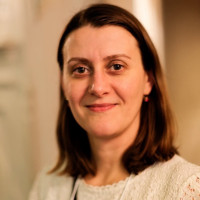
Over approximately the last decade, the Music Encoding Initiative (MEI), has become a recognized international community-driven effort that has developed and maintains the MEI schema, standards, and shared documentation. The potential of machine-readable music data that can be reused, rendered, shared, or analyzed using a computer, is quite appealing, however the reality is that various barriers exist for people who may be interested in creating or using encoded music data for the first time.
One approach to lowering barriers is through digital pedagogy, in which the focus is “specifically on the use of technology to break down learning barriers and enhance students’ learning experiences.”(1) In addition to teaching MEI via online tutorials or workshops, students and scholars* should consider approaching the MEI through the lens of digital pedagogy or more specifically critical pedagogy, which emphasizes and overlaps with many of the tenets that make up the ACRL Framework for Information Literacy for Higher Education.(2) Critical pedagogy encourages questions around authority and power structures, for instance: why was MEI created and for whom, whose music is being encoded, who has access to the data, when/why should we use MEI, what type of infrastructure is necessary for MEI work, and so on. Encouraging and engaging in conversations with students and scholars about the affordances of MEI is equally valuable as is the act of creating encoded music data or full-on MEI projects.
In this talk, I will explore some of the barriers that students and scholars new to the MEI often experience and discuss models related to some of my own work as a librarian and digital humanities practitioner; focusing in particular on the “Introduction to the Music Encoding Initiative,” co-written with Raffaele Viglianti and recently published in the DLFteach Toolkit, (https://dlfteach.pubpub.org/toolkit), in which we aim to present music encoding through a low-barrier approach that utilizes open source tools.(3) I will also present examples (such as minimal computing efforts) from the broader digital humanities community that we might borrow from, which embrace the ethos and approaches of critical and digital pedagogy.(4)
Notes
(1) Reed Garber-Pearson and Robin Chin Roemer,: “Keeping up with digital pedagogy”
(2) ACRL, “Framework for Information Literacy for Higher Education”
(3) See also Rebalancing the Music Canon
(4) TEI By Example; Minimal computing; Programming Historian.
*By scholar, I mean any person engaged in research or scholarly activity. It is not limited to faculty.
Anna E. Kijas is a Music Librarian and Head of Lilly Music Library at Tufts University (https://tischlibrary.tufts.edu/use-library/music-library). She is interested in exploring the affordances and application of digital humanities tools and methods in historical (music) research, the application of standards, including TEI and MEI, for open access research and publishing, and the use of minimal computing. She also explores and writes about topics in nineteenth century music with a focus on gender, women, and performance criticism and reception.
Anna recently published a book entitled “”The Life and Music of Teresa Carreño (1853-1917): A Guide to Research””, and developed a digital project (https://documentingcarreno.org), which documents Carreño’s performance career with primary source materials, metadata, and transcriptions, as well as explores her performances and texts through data analysis and visualization tools. She writes about using digital humanities tools and methods to explore, visualize, and augment scholarship. Anna is currently serving on the Executive Council for the Association for Computers and the Humanities (ACH), is Chair of the Affiliation and Liaisons Committee (ACH), and Chair of the Organizing Committee for the upcoming Music Encoding Conference (2020).
A continuously updated schedule of talks is also available on the Digital Dialogues webpage.
Unable to attend the events in person? Archived podcasts can be found on the MITH website, and you can follow our Digital Dialogues Twitter account @digdialog as well as the Twitter hashtag #mithdd to keep up with live tweets from our sessions. Viewers can watch the live stream as well.
All talks free and open to the public. Attendees are welcome to bring their own lunches.
Contact: MITH (mith.umd.edu, mith@umd.edu, 301.405.8927).
